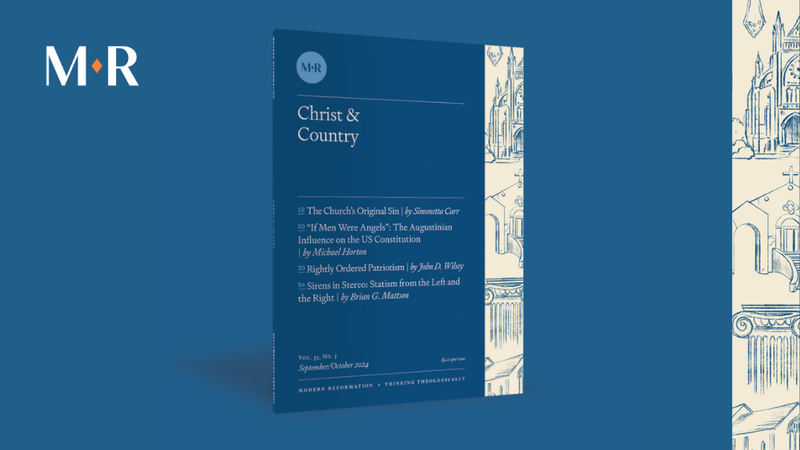Jesus summarized the law as devotion to God above all and to our neighbors as ourselves (Matt. 22:34–40). Although some neighbors are naturally closer than others, God makes it plain that we should consider every human being as worthy of our neighborly love. Whether we’re talking about the members of our family, the citizens of our country, complete strangers, even personal or cultural enemies—we need to love them as we love ourselves. Yet, as sinners prone to wander, we continually struggle with the temptation to twist or reject what God has made plain.
Sometimes we pit the two greatest commandments against one another—like loving others while neglecting God. This is especially tempting in those relationships nearest to our hearts. What if speaking biblical truth pushes away a loved one? What if Scripture doesn’t toe my favored political party line? “Whoever loves father or mother more than me,” Jesus warns us, “is not worthy of me” (Matt. 10:37). Of course, we can also fall into the opposite temptation: hypocritically seeking to love God while neglecting those bearing his image.
Sometimes we get around God’s word about neighborly love by narrowing the scope of who deserves it. Like Jonah, we resent God’s mercy and forgiveness to those we despise, refusing to rejoice when they repent (Jon. 3:5–4:4). We’re happy to receive God’s blessings but reluctant to extend them to others no less deserving. Or perhaps like the Bible scholar in Luke 10, we look for legal loopholes, asking, “Who is my neighbor?” (v. 29). Jesus responds with the parable of the good Samaritan, teaching us that neighborly love isn’t motivated primarily by natural affinity but by mercy. The good neighbor isn’t the one who looks like me; he’s the one who loves me like God does.
Finally, sometimes we deny God’s law by forcing the two greatest commandments into conflict. We exalt the human alongside the divine original. Here our devotion to others crowds out (even overthrows) our devotion to God. Jesus refuses to allow us this path either: “No one can serve two masters” (Matt. 6:24). Although he’s speaking about money, his words are just as true when applied to family, country, or any other created reality. Nothing must distract from, or compete with, our devotion to King Jesus. Worshiping anything instead of God is idolatry. So is worshiping anything alongside him.
As Christians, our devotion to earthly goods is subservient to our devotion to Christ as Lord. This fundamentally transforms the character of our love—which has always made the church’s allegiances paradoxical. How can we relativize Caesar’s authority while praying for him and submitting to him (Rom. 13:1–9)? How can we be good citizens of our earthly countries while belonging to a heavenly one (1 Pet. 2:13–17)?
We can hold together the two greatest commandments because Jesus didn’t merely summarize them for us: He fulfilled them for us in his life, death, and resurrection. And he fulfills them in us now by giving us his word and enabling us by his Spirit to walk in his righteousness (1 John 2:1–6). Indeed, “We love because he first loved us” (4:19). In Jesus, love of God and neighbor hold together as mysteriously and perfectly as divinity and humanity.








